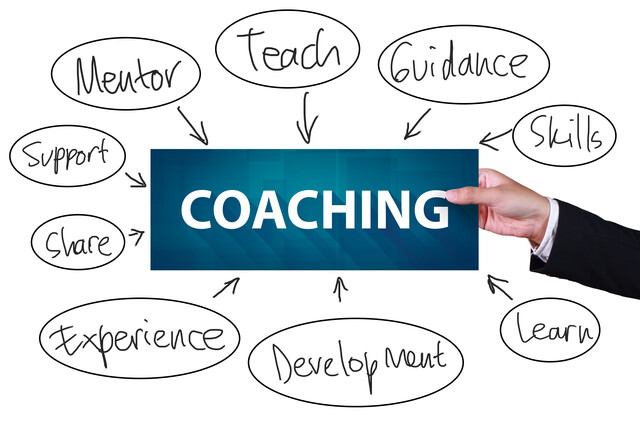Many professionals today are focusing their networking efforts online, as this is the place to connect with people from around the world. However, since there are so many options, it can be hard to decide what the best use of one's time might be � and how you can build effective networks.
Thankfully, there are systems in place that are specifically used for creating professional networks, and they are more user friendly than ever. Having a plan in place can help you make the most of these tools, and returning to your networks regularly will ensure quality connections.
How to Make the Internet Work for You
With the many options available to you on the Internet, it can be challenging to decide where to begin. In using the Internet, it can help to remember:
-
There is a place for every professional � Because of the diversity of resources online, you can find a place for your particular industry and your networking goals. Spend time learning about these resources before you start using them.
-
Realize your networking approach should be dynamic � Since the landscape online can change from moment to moment, it helps to be ready to respond. Keep up on the latest industry trends by using search engine tools (i.e. Google Alerts) and learning more about new networking options as they emerge.
-
Quality is the better approach � Though you want to be in as many groups as you can and as are relevant, the best places to be are there the quality professionals are. This will help you build networks that will enhance your career, rather than simply take up your time.
-
Spend your time in the places that matter � Try to set aside a certain amount of time to work on your networking approaches. This might include spending a thirty minutes a day on your network contacts, and making sure you're cultivating positive partnerships.
-
It helps to know what your goals are � If you can go into Internet networking with a clear goal, or goals, you will make the most of your time. Find out what's important for you to gain from these activities, and when you stray from these goals, look for other opportunities.
The Internet is a place where you can meet new faces you may not experience in your local area. But it does take a more focused approach if you want to do more than just increase the number of connections you have.
LinkedIn Strategies
One of the best places currently to network with other professionals is LinkedIn. This site is designed for the professional who is ready to showcase their abilities and their strengths in the larger, global community. To make the most of LinkedIn, you will want to:
-
Update your profile � Start today by updating your profile to include your most recent work experience, your skills, your accomplishments, and your training. You will want to update this regularly to ensure you get noticed by and connected to people who can be a part of your network.
-
Know what sets you apart � The more you can define what makes you unique and interesting, the more others will be able to see your value. This might include defining the things you have accomplished or the ways in which you look at your role in your industry.
-
Create an enticing introduction � You can begin to introduce yourself effectively in the summary section of your LinkedIn profile. This should be more conversational, so as to help others understand that you're real person and someone worth having in a network.
-
Join groups and interact � There are a number of groups on LinkedIn that are industry-focused. There, you can talk with other professionals, connect on ideas, and start building networks. You can also begin to showcase your expertise, which may lead to other unexpected connections.
-
Use the update feature � If things are coming up in your industry, you can share articles and comment on them. By contributing to the conversation about what matters to you, you will attract people who want to continue to listen to you.
-
Endorse others � You can endorse the skills of others you know in your network, helping to build their exposure. These people will also often endorse your skills, allowing everyone to boost their attractiveness to other professionals and organizations.
-
Use the messaging system � To reach out to other professionals, you can use the LinkedIn message system. This might be a quick note to someone asking to connect or you can simply reach out to give a compliment to someone who is admirable and noteworthy. Or you might use this system to promote yourself for a job listing.
-
Connect with people who can help you or that you can help � You can ask to connect with others, even if you don't know them. Send out personal messages that are more targeted, and that can get the attention of someone who might be valuable to your network.
The key with LinkedIn is to do more than just post your profile and think that's all you need to do. Get active in the tools it provides. Find out how you can position yourself as an asset in the industry you are in � or the industry you want to get in.
Facebook, Twitter, and Google+
While the number of social media outlets grows, you need to know which ones are the best suited to professional networking. You can choose the one that's best for your industry by finding out:
-
Which one is being used most in your industry?
-
Which one is easiest for you to use?
-
Which one provides the best quality of connections?
To be fair, some of the answers to these questions will only be answered in your usage of the tool. You may need to use a social media network for a while before you decide if it's worth the energy you've expended.
Facebook, Twitter, and Google+ are the main tools being used to network today. While there are certainly others, we're going to focus on the most widely used, and then you can use the information and advice about them to effectively choose other tools for your networking strategy.
-
Set up a clear profile � The first thing a person is going to see when they're on a social media network is your profile. You need to find a way to clearly and succinctly show who you are, what you have to offer, and how you can benefit some as a connection.
-
Interact regularly � Once you have the profile set up, you will want to interact regularly. In doing so, you will create stronger relationships and you will allow others to get to know you. Post professional status updates, share links, and be a voice in your industry.
-
Choose quality contacts � When you're starting to connect with others, you should look for contacts who will be helpful to your network. If you're not sure who these people might be, follow the lead of other professionals in your industry. Connect with their connections, and then spread yourself out from that starting point.
-
Help others out � Whenever possible, make sure you're helping other people out in your network. This might include answering a question, giving advice, or just celebrating someone else's success. The more you show you're a part of a relationship and not just trying to get something from them, the more effective you will be. (And the more likely it is that someone else will return the favor.)
-
Focus on building a network versus being popular � The biggest problem people have on social media is thinking they need to be liked in order to have a strong network. Instead, focus on being relevant in your industry or your target industry. When you do this, you'll be able to create a quality network that is going to advance you in your professional career.
The more you use the social media tools available, the more you will be able to understand how they can be helpful. When something works or you get a response from an action you take, make note of this � and put that on your To Do list in the future.
Summary
When you're online, you have the opportunity to network with a variety of professionals, people who can help you in your career or in your current professional goals. Some outlets that are widely utilized include LinkedIn, Facebook, Twitter, and Google+. To build strong networks, know your goals, create strong profiles, focus on interactions, and build relationships.
There are many reasons why people are hesitant to focus their time and their energy on professional networking. But the most common reason for avoiding networking is shyness. Though you may not want to appear shy in your industry, you may not be altogether comfortable in reaching out to strangers.
Many introverts find the idea of networking to be scary, and even impossible. But with a few pieces of advice and a few different strategies, it can be simple to become a networker, even if you don't like to talk about yourself or meet unknown people.
Know Yourself � and Know You're Not Alone
You need to begin your professional marketing planning with the understanding that you don't have to be the loudest voice in order to get noticed. What you do need to do is to figure out who you are, what you have to offer, and how you will portray yourself.
Like any marketing strategy, you may want to begin by listing all of the positive attributes that you bring to your career or your position. Focus on creating strong profiles that are true, concise, and that make the initial introduction for you. This will help you better connect with people who are interested in you specifically.
A strong profile can screen out those who aren't as relevant to your networking needs. By screening out those people, you can focus on those who will add valuable connections.
Set Limits, Measure Results
If you're someone who isn't comfortable with social interactions, you may just want to state that when you do meet up with someone online or in person. This shouldn't be the first thing you say, but you can ease your own anxiety by:
-
Having scheduled meetings � Instead of just meeting with someone in a random place, start by setting up specific meetings in which you know you will need to be social and engaged. Having a set time can often help you focus and knowing the time is limited can reduce your anxiety.
-
Being clear about what you want � From the start of your conversation, you may want to talk about how you are building your network and you are trying to reach out to other professionals you admire. This will show your thoughtfulness and it can help the other person be more interested in helping you.
-
Asking questions � When you're not sure how to keep a conversation going, you may want to ask questions of the other person. Have a list of questions that allow you to learn more about them, about their business, etc. People love to talk about themselves, so if you're ready with questions, you may not have to speak much at all.
-
Focusing on results � Though the time when you're interacting with someone might be frightening, think about what you gain from these interactions. While you might never get past anxiety or worry, you can learn how to be more comfortable.
When you are clear about what you can and what you can't do, you will begin to feel more comfortable in networking. Over time, you may find you're able to change your limits and be more relaxed in certain situations.
Join Groups
Though being a part of a group might seem to be scarier than reaching out to someone individually, these networking events can be very helpful for an introvert.
First, when you are in a group, it takes the pressure off of you to be the one who is always talking. You don't have to be that person. You can listen to others, ask questions, and get value from the conversation without having to lead it.
Groups also allow you to make multiple connections at once, especially when they are focused on networking. Others will want to reach out to you, which can make it easier for you to build your network, without having to put a lot of work into the relationship.
You can also visit groups when you're able and willing. You don't have to come to the group every single time they meet, or you can be a part of online groups, which can be much less intimidating.
Again, over time, you might find that your worries about interacting with other professionals are lessened as you see the results of your interactions. You may never be comfortable, but you also may not be as stressed by the possibility of a conversation with someone you don't know.
Summary
























